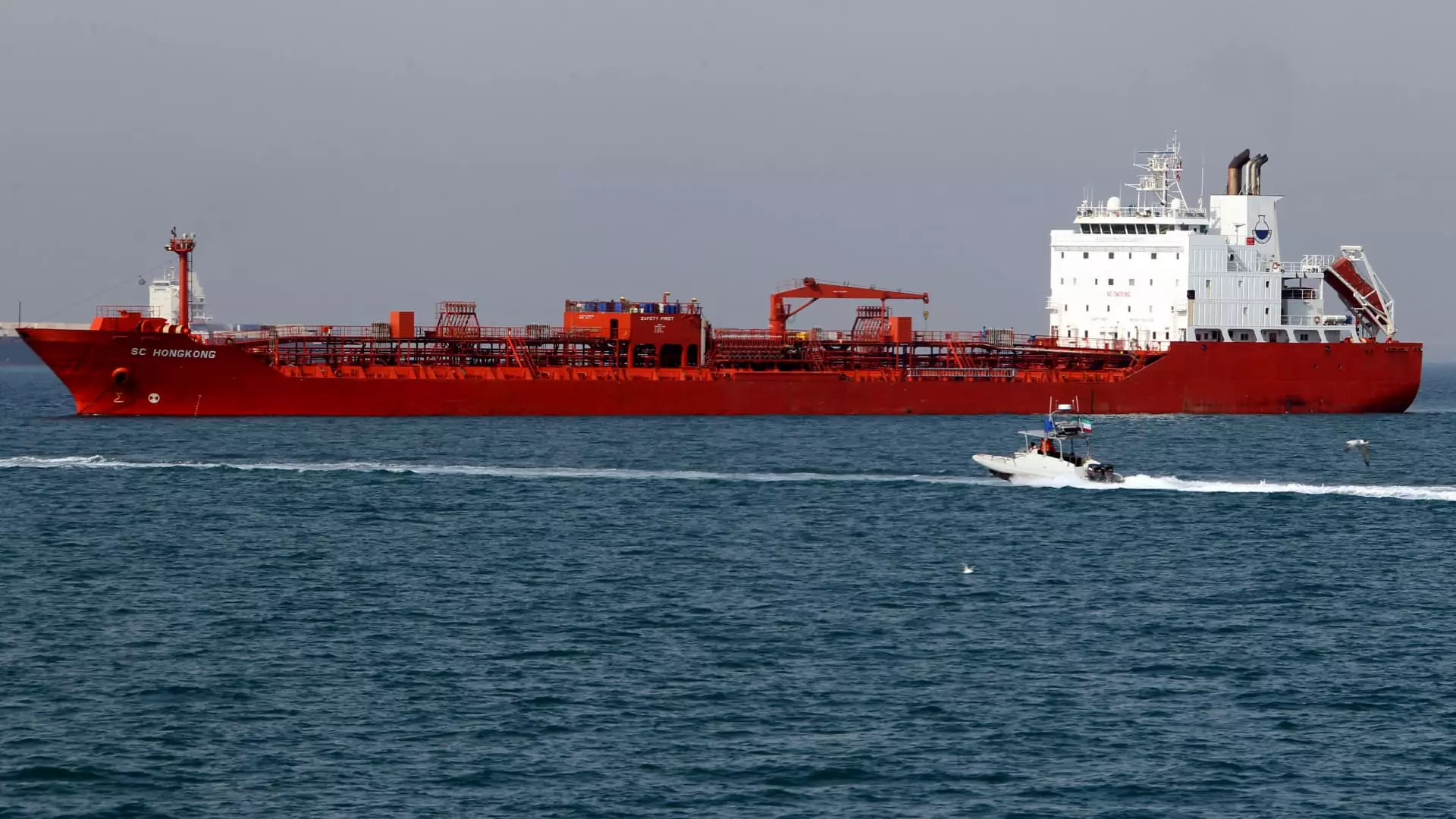The world of oil pricing can change in a heartbeat, and recent developments underscore the volatility that characterizes this global commodity. Oil prices plummeted dramatically as President Donald Trump effectively loosened the reins on oil purchases from Iran, signaling a shift in U.S. strategy now that the Middle Eastern conflict appears to be simmering down—at least for the moment. By mid-afternoon on Tuesday, global benchmark Brent crude slid by 5.68%, while U.S. crude faced a similar fate, showcasing a market reaction deeply intertwined with geopolitical maneuverings. With Brent crude hitting $67.42 per barrel and U.S. crude at $64.63, the market has certainly reacted to what it perceives as an easing in tensions.
What this rapid decline signifies is not only the material impact of international relations on the oil market but also highlights the often fickle nature of investor sentiment. Following significant surges in prices due to fears of supply interruptions after Israel’s military actions against Iran, the sudden about-face towards optimism speaks to a cycle of anxiety and relief that finds its roots in eras of potential conflict. It is not simply a tale of economics but one that melds finance with politics in a dangerous dance of uncertainty.
The Magnitude of Trump’s Decision
President Trump’s declaration on his Truth Social platform, where he announced that “China can now continue to purchase oil from Iran,” illuminates the complexities of international trade and diplomacy. It’s an ironic twist that the U.S., often portraying itself as a hardliner against Iranian military aspirations, is now subtly allowing a flow of Iranian oil in hopes that it will encourage a more stable pricing landscape.
This seemingly benevolent choice may appear strategic—after all, low oil prices mean less immediate pressure on consumers and, theoretically, a more stable economy. Nevertheless, it raises serious questions about morality and the larger implications of Trump’s governance style. Is this merely a façade of diplomacy, an attempt to pacify markets while ignoring the deeper repercussions of such decisions? Economics is never divorced from the ethical dimensions of policy making, especially when it pertains to entities like Iran, which have faced international scrutiny for their behavior on the global stage.
The Stakes of Regional Stability
Alongside this political maneuvering, a ceasefire agreement between Israel and Iran hangs precariously, barely maintained by the thinnest threads of diplomatic engagement. Trump’s mixed messages paint a complex picture; he chastised both nations for potential violations of the ceasefire while suggesting an unusual leniency towards Iranian oil transactions. While the U.S. has historically leaned towards supporting Israeli military actions, the current administration’s course shines a stark light on the unpredictable nature of international relations.
As the region grapples with issues of nuclear capability and military posturing, the oil market reacts not only to the economic implications of supply and demand but also to fears of an oscillating conflict that could disrupt crucial shipping lanes, like the Strait of Hormuz. The Strait, often cited as a pivotal juncture for global oil exports, remains a volatile chessboard for the nations embroiled in the Middle East’s long-standing conflicts. With 20% of the world’s crude passing through, the interruptions could send prices spiraling, rekindling the very fears that have been temporarily set aside with this new geopolitical development.
The Investor’s Dilemma
Investors now find themselves wrestling with dual realities. On one side lies the alluring potential for profit stemming from a stabilized—and potentially more ample—supply of oil from Iran. On the other, the persistent fear remains that a miscalculation in diplomatic efforts may reignite conflict, stoking prices and causing havoc for both investors and consumers alike. It’s a live wire situation, precariously balancing between illusion and reality.
If Trump’s newfound diplomacy ultimately results in sustained calmer seas for the oil market, it could spur a much-needed economic revamp. However, the risk of backlash looms larger than ever; maintaining pressure without igniting the flames of war requires a deft hand—one that can walk the line between economic necessity and political accountability.
In the end, it would be naïve to believe that oil prices will remain immune to the swirling winds of conflict and commerce. Underestimating the delicate interconnections between energy policy, global stability, and moral responsibility could lead to catastrophic consequences, not only for those who trade oil but for everyday citizens who feel the effects at the gas pump. The dialogue is far from over, and the outcomes unpredictable.


Leave a Reply